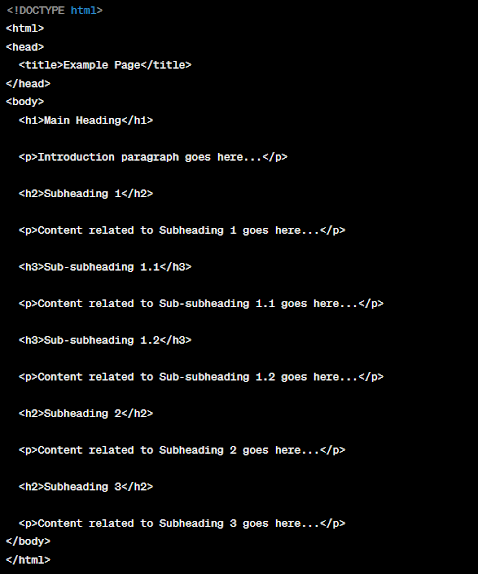Using header tags (H1, H2, etc.) to structure your content
is not only important for organizing your content but also for SEO (Search
Engine Optimization) purposes. Search engines use header tags to understand the
hierarchical structure of your webpage and determine the relevance of your
content to specific search queries. Here's an example of how you can use header
tags to structure your content with SEO in mind:
In this example, we have used the <h1> tag for
the main heading of the page, indicating its highest level of importance. Then,
we have used <h2> tags for subheadings, <h3> tags for
sub-subheadings, and so on, to represent the hierarchical structure of the
content.
By following this structure, search engines can better
understand the relationships between different sections of your content. It
helps search engines identify the main topic of the page (through the main
heading), the main sections (subheadings), and the subtopics within those sections
(sub-subheadings).
When optimizing your content for SEO, it's essential to
include relevant keywords in your header tags. This helps search engines
associate your content with those keywords and improve the chances of your page
appearing in relevant search results.
Remember to use header tags logically and consistently
throughout your content. Overuse of header tags or skipping levels in the hierarchy might mislead search engines and visitors.










